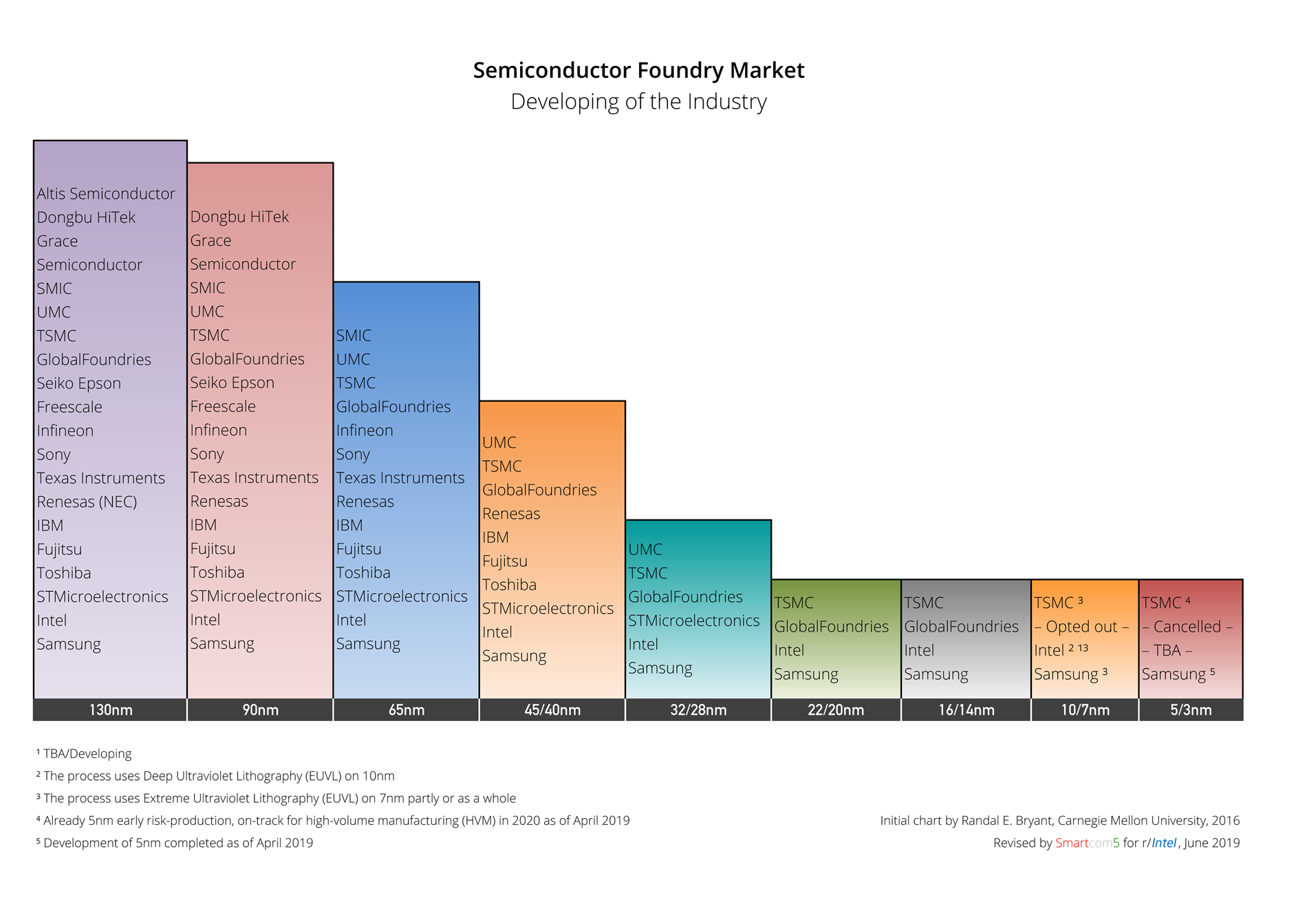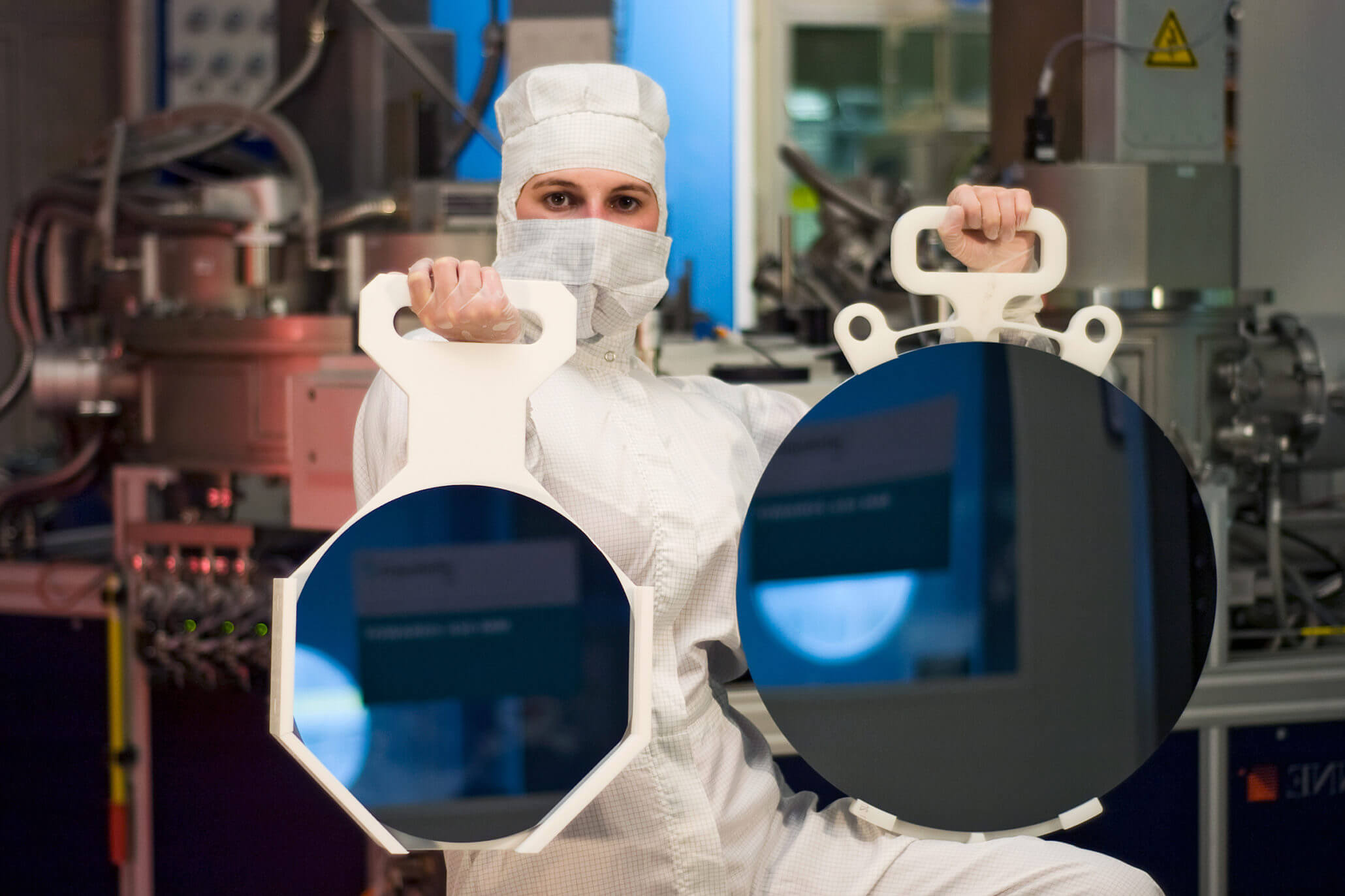- Joined
- Oct 9, 2007
- Messages
- 47,878 (7.38/day)
- Location
- Dublin, Ireland
| System Name | RBMK-1000 |
|---|---|
| Processor | AMD Ryzen 7 5700G |
| Motherboard | Gigabyte B550 AORUS Elite V2 |
| Cooling | DeepCool Gammax L240 V2 |
| Memory | 2x 16GB DDR4-3200 |
| Video Card(s) | Galax RTX 4070 Ti EX |
| Storage | Samsung 990 1TB |
| Display(s) | BenQ 1440p 60 Hz 27-inch |
| Case | Corsair Carbide 100R |
| Audio Device(s) | ASUS SupremeFX S1220A |
| Power Supply | Cooler Master MWE Gold 650W |
| Mouse | ASUS ROG Strix Impact |
| Keyboard | Gamdias Hermes E2 |
| Software | Windows 11 Pro |
Samsung has reportedly secured a "PC CPU" manufacturing order from Intel. This would entail Intel using Samsung's fabs to manufacture its processors. "PC CPU" is a broad term, interchangeable with "client CPU," and could include both notebook and desktop processors, spanning the "S," "H," "U," and "Y" silicon variants (mainstream desktop, mainstream notebook, ultrabook, and ultra low-power, respectively). Samsung's bouquet of contract-manufacturing covers not just silicon fabrication across 14 nm, but also sub 10 nm nodes, but also provides other key stages of processor manufacturing, including bumping and packaging. Intel would want minimal expenditure in adapting its chip designs to Samsung's nodes
In her November 20 letter addressed to Intel's customers, executive V-P and GM for sales, marketing, and communications, Michelle Johnston Holthaus, mentioned that in addition to Intel's own manufacturing facilities, the company is roping in "foundries" (third-party silicon fabrication companies) to meet demand. Samsung and TSMC lead the foundry business, followed by the likes of GlobalFoundries, UMC, etc.

Many Thanks to biffzinker for the tip.
View at TechPowerUp Main Site
In her November 20 letter addressed to Intel's customers, executive V-P and GM for sales, marketing, and communications, Michelle Johnston Holthaus, mentioned that in addition to Intel's own manufacturing facilities, the company is roping in "foundries" (third-party silicon fabrication companies) to meet demand. Samsung and TSMC lead the foundry business, followed by the likes of GlobalFoundries, UMC, etc.

Many Thanks to biffzinker for the tip.
View at TechPowerUp Main Site








